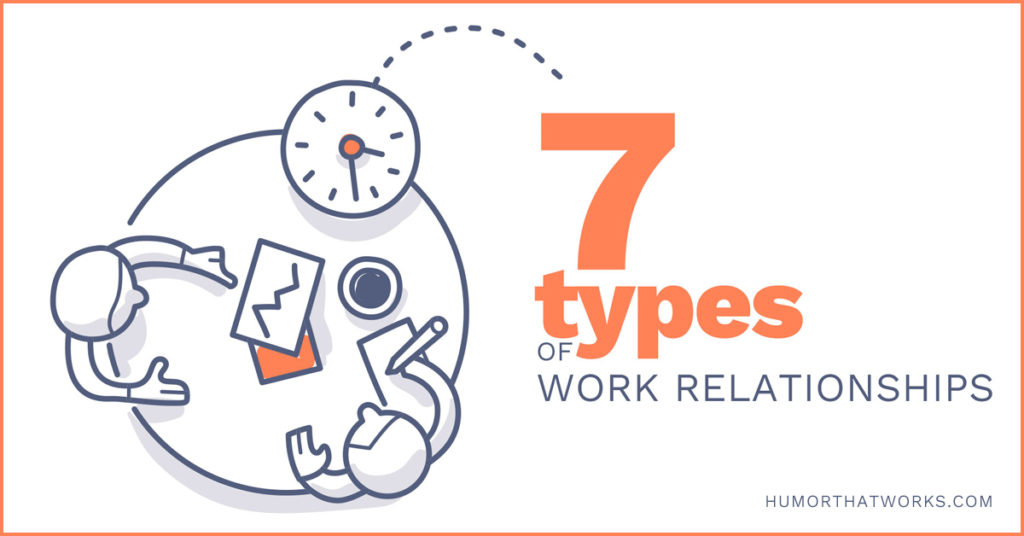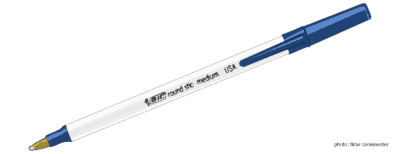Now that we’ve covered the importance of relationships at work, let’s talk about the types of work relationships. Understanding the different types of work relationships can help you determine the role your existing relationships play, and which ones you may be lacking.
First and foremost, not all work relationships are created equal – some will help propel your careers, others will help keep you sane, and a few can even be detrimental. The more you can build strong, meaningful relationships, the more likely you are to not only succeed, but be more satisfied with your career.
Second, there are two types of work relationships: professional and personal. Professional relationships are solely for the purpose of getting your work done. They help you advance your career and would not exist if not for your job. Personal relationships at work are those you have in the workplace for social reasons. They don’t impact your job other than they improve workplace satisfaction (by up to 96 percent!) and keep you sane.
These different types of work relationships are not mutually exclusive – some people will fall into both the professional and personal categories. These are the truly important relationships that make work fun and productive.
With that understanding, let’s learn about the 7 Types of Work Relationships (in order of intimacy, from lowest to highest):
1) Coworkers
Type: N/A
Description: Co-worker relationships are neither professional nor personal, but merely circumstantial. They are acquaintances through your company, but beyond working for the same organization, you have very little interaction with them.
Role: Co-workers serve little role professionally or personally, but serve a valuable role in that they are often the pool of people from which other, more meaningful relationships will be established.
2) Team Members
Type: Professional
Description: Team-members are fellow employees who work on the same team as you. This could be the team you work with on a daily basis, a committee you’ve joined or a group working together for a single activity.
Role: Team-members are important because they are the people you actually accomplish work with. Together, you plan, design, develop, execute and track work related to your role. The better your relationship with your team, the easier it is to get this work completed.
3) Work Friends
Type: Personal
Description: Work Friends are people who you interact with socially at work–you sit by them in meetings, go to lunch together, talk to them at work events and happy hours, and possibly even see them outside of work every now and then.
Role: Work Friends fill our social need and keep us sane from the daily grind. You likely wouldn’t be friends with them if not for your mutual employment of each other at the same company, but they serve as our support system during the corporate hours.
4) Manager/Direct Report
Type: Professional
Description: Your Manager is the one assigning you the work, helping you succeed and ultimately impacting the work you do (and don’t do). Your Direct Reports are the ones who report to you (you are their manager). They also determine whether or not you succeed.
Role: The relationship between you and your manager is vital because they often play an important role in determining your rating, salary and workplan. They are also a large factor in your workplace satisfaction (as they say, you don’t leave a company, you leave your manager). For your Direct Reports, you serve these functions, while they serve as a way to accomplish more with your organization without you doing all of the work.
5) Office Spouse
Type: Personal
Description: Your Office Spouse is that person you spend a significant amount of time with; they are your go-to for venting and advice, and there have probably been rumors about the two of you at one time or another (even though it is platonic).
Role: The role of the Office Spouse is to serve as your “workplace bestie” or go-to friend when you have a work predicament. They keep you from jumping off the ledge, are the person you trust with sharing your emotions and frustrations, and know you the best out of any of your workplace relationships.
6) Mentor/Mentee
Type: Professional
Description: Mentor/Mentee is the highest professional relationship you can have. It’s similar in intimacy to that of an Office Spouse, but it serves you professionally. Your mentor is that person you go to for career guidance and help on the toughest-of-the-tough problems. Your mentee is the one coming to you for that advice.
Role: Your Mentor helps you traverse the landscape at your job. They help you think through the most challenging problems, give you perspective on how to handle your most challenging relationships, and generally guide you to success. You serve the same purpose for your Mentee, while they keep you grounded and connected to the pulse of the organization.
7) Life Friends
Type: Personal
Description: The most intimate work relationship you can have is one that you don’t even consider specific to work–that of a friend IRL (in real life). They would be your friends even if you no longer worked at the company.
Role: These are friends who fill the same role as your normal social friends, because that’s what they are. You have fun together, laugh together, cry together, and possibly become romantically involved together. They aren’t friends you know at work, they are friends you happen to work with.
7 Types of Work Relationships
Obviously the real-world isn’t as structured as what is depicted with these differentiations in relationships. Some people fall into multiple categories (a manager and a mentor) and some blur the lines between two or three of them. However, having an understanding of the basic types of work relationships can help you determine the purpose of the relationship and how to best leverage it for helping you succeed, not just at work, but in life.





All is amazing
Having an understanding of the basic types of work relationships can help you determine the purpose of the relationship and how to best leverage it for helping you succeed.
The type of interpersonal relationships that existed between the employee and co-worker
Working relationship
Pingback: Might You Be Having OCD? Or is it Something Else? Here are Some Signs You Should Not Ignore - ShePlanet
Pingback: Internet Business Ideas to Make Money Online - DailyStar
kindly help me with this question- Jane and Karen have challenges in their relationship both social and professional, as a communication consultant with relavant examples and citations. Explain how the two can relate well socially and officially ( atleast 2 citations per paragraph.
Hoy como puedo relacionarme directamente con mi equipo de trabajo.
want to know how can work relationship be categorized
Pingback: The Ultimate Guide to Better Work Relationships - DailyScene.comDailyScene.com
Like the term, “workplace bestie,” where would we be without them?